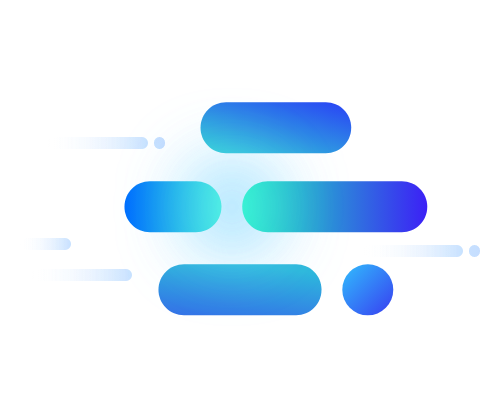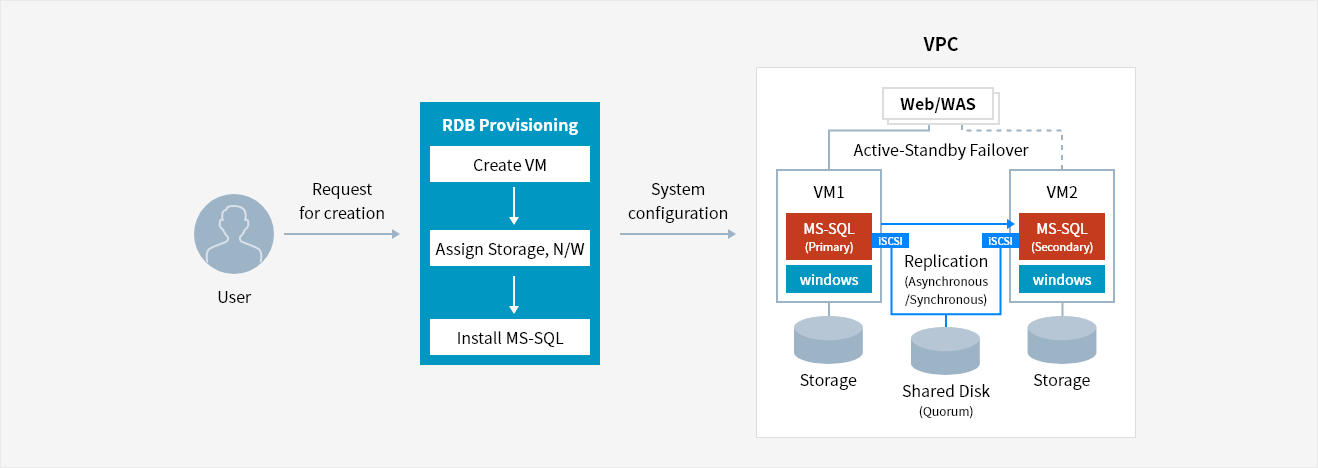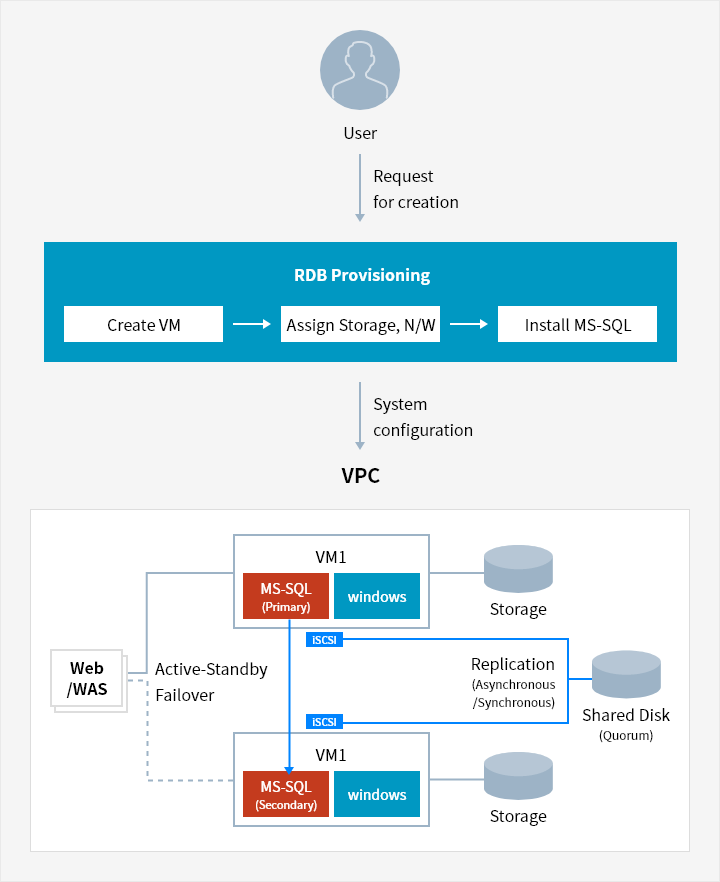
Microsoft SQL Server (DBaaS)
Easily Creates and Manages Microsoft SQL Server in a Web Environment
Overview


-
Large-scale Data Platform
MS-SQL supports in-memory storage and large-scale data processing. It also uses partitioned index, making it easy to manage large tables. In addition, its resource management feature helps adjust resource usage.
-
Convenient DB Management
Microsoft SQL Server(DBaaS) uses a web-based console to automate DB managers’ tasks, allowing easy access for anyone to be able to create and manage databases. With Samsung Cloud Platform taking care of complicated database management, users can focus on application development and service operation.
-
Outstanding Reliability and Availability
Microsoft SQL Server(DBaaS) offers optimized environments to securely manage customers’ data based on Samsung SDS’ decades of experience and know-how on DBMS management. The highly reliable high performance infrastructure and sync replication architecture developed by Samsung SDS also ensure high availability.
-
Robust Security
VPC (Virtual Private Cloud)-based network access architecture enables easier separation of databases and Security Group allows secure access while automated vulnerability diagnosis and analysis preemptively responding to security threats.
Service Architecture




- Create VM
- Assign Storage & N/W
- Install MS-SQL
- Web/WAS - Active-Standby Failover- VM1(MS-SQL(Primary)/windows)-Storage
- Web/WAS - Active-Standby Failover- VM2(MariaDB(Secondary)/windows)-Storage
- VM1's iSCSI → Shared Disk(Quorum) → Replication(Asynchronous/Synchronous) → VM2's iSCSI
Key Features
-
Rapid and safe DB creation
- Auto provisioning : Automatically install standard version Samsung Cloud Platform database using VM with various spec
- HA configuration : Configure active-standby with disk synchronous replication based on AlwaysOn. Enhance security features or configure DR when configuring additional AD (Active Directory) server.
- Multi-AZ configuration : HA configuration for Microsoft SQL Server(DBaaS) across two availability zones -
Simple and convenient DB management
- Backup (Data & Archive) : Perform scheduled backup and instant backup in File Storage by using differential backup feature in MS-SQL
- Recovery : Able to recover to a specific point in time or present time based on backup files stored in File Storage
- Patch : Provide patch function for DB minor version
- User parameter setting : Set parameters regarding better DB performance and security
- Read Replica : Configure read-only servers for purposes of load balancing for reading or disaster recovery(DR), in the same or different region
- Storage : Add storage in the data domain
Pricing
-
- Billing
- Provided in VM package, composed of VM & BM costs
· Without contract : Hourly charge based on metering information of server(DB) status being ‘on’
· Contracted : Fixed monthly charge according to contract terms
Whether you’re looking for a specific business solution or just need some questions answered, we’re here to help